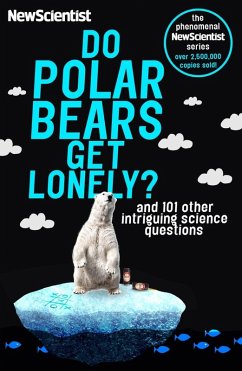Do Polar Bears Get Lonely? is the third compilation of readers' answers to the questions in the 'Last Word' column of New Scientist, the world's best-selling science weekly. Following the phenomenal success of Does Anything Eat Wasps? (2005) and the even more spectacularly successful Why Don't Penguins' Feet Freeze? (2006), this latest collection includes a bumper crop of wise and wonderful answers never before seen in book form.
As usual, the simplest questions often have the most complex answers - while some that seem the knottiest have very simple explanations. New Scientist's 'Last Word' is regularly voted the magazine's most popular section as it celebrates all questions - the trivial, idiosyncratic, baffling and strange. This all-new and eagerly awaited selection of the best again presents popular science at its most entertaining and enlightening.
As usual, the simplest questions often have the most complex answers - while some that seem the knottiest have very simple explanations. New Scientist's 'Last Word' is regularly voted the magazine's most popular section as it celebrates all questions - the trivial, idiosyncratic, baffling and strange. This all-new and eagerly awaited selection of the best again presents popular science at its most entertaining and enlightening.
Dieser Download kann aus rechtlichen Gründen nur mit Rechnungsadresse in A, B, BG, CY, CZ, D, DK, EW, E, FIN, F, GR, HR, H, IRL, I, LT, L, LR, M, NL, PL, P, R, S, SLO, SK ausgeliefert werden.

